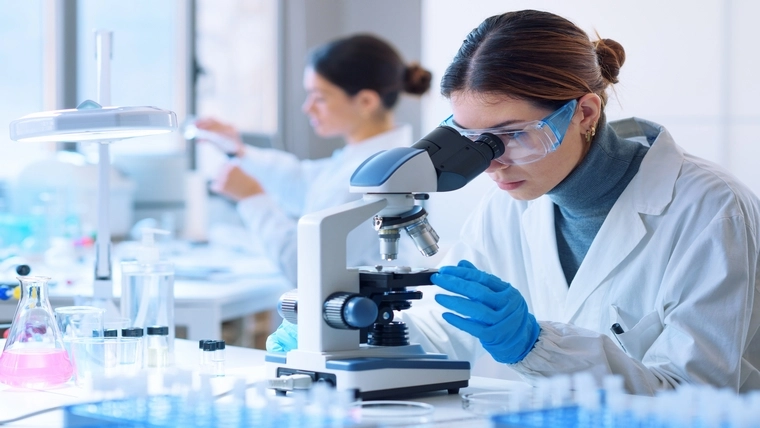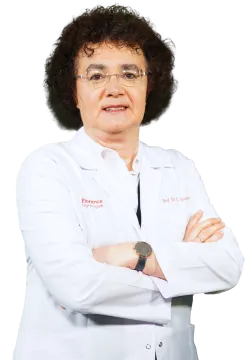
What is the Pathology Department and What Diseases Does It Treat?
The pathology department is a medical specialty that examines tissues, organs, fluids, and cellular structures to diagnose and monitor disease progression. Methods such as biopsy, autopsy, and laboratory tests are used to understand the causes and effects of abnormal changes in the body. Pathology plays an important role in the diagnosis of many diseases such as cancer, infectious diseases, immune system diseases, and genetic disorders.
About the Pathology Department
Pathology is one of the most important diagnostic tools in medicine, allowing diseases to be examined at the molecular, cellular and genetic levels. These examinations provide detailed information about how diseases develop and how they affect the body. The pathology department helps to accurately diagnose diseases, especially by analyzing tissue samples taken after surgical procedures.
Who is a Pathologist and What Are Their Duties?
A pathologist is a medical doctor who diagnoses diseases by examining blood, urine, tissue, and other body fluids. He or she analyzes these samples using a microscope and laboratory tests to determine the presence and type of disease. He or she also monitors the course of diseases, recommends treatments, and makes predictions about the progression of diseases.
Pathologists play critical roles in many areas of medicine, including cancer, immunology, and genetics. They use laboratory tests and techniques to determine the type and stage of disease. They manage the diagnostic process in collaboration with healthcare professionals such as radiologists, oncologists, hematologists, and surgeons.
- Diagnose: They examine body tissue and fluid samples to diagnose diseases such as bacteria, viruses, or cancer. Pathologists play an important role in the vast majority of cancer diagnoses.
- Treatment recommendation: Pathologists may recommend a specific antibiotic for a bacterial infection, for example, or recommend chemotherapy, radiotherapy or surgery to treat a tumour.
- Monitoring the disease: They track the progression of blood-borne diseases, such as hepatitis B, by analyzing blood samples.
- Providing prognosis: In some diseases, such as leukemia, gene mutations can affect the future course of the disease. Pathologists provide prognosis information by performing genetic tests to detect these mutations.
Pathologists do not usually communicate directly with patients. They make their own diagnoses, but the person who communicates these results to the patient is usually a specialist such as a gastroenterologist or gynecologist. However, pathologists working in certain pathology specialties, such as blood banking and transfusion medicine, may communicate directly with patients.
Pathologists also play an important role in medical research, helping to develop new treatments to combat or prevent viruses, infections, and diseases. This includes developing new vaccines and discovering targeted therapies.
As a result, pathologists have a key role in modern medicine, both in diagnosis and treatment, and contribute to a variety of medical fields.
What Diseases Does Pathology Examine?
Pathology deals with a wide range of diseases. Pathology deals with infectious diseases, autoimmune diseases, chronic inflammations, genetic disorders and metabolic diseases, especially cancer. Pathologists analyze tissue and cell samples in detail to diagnose and monitor these diseases.
How Many Days Does It Take to Get the Pathology Results?
The time it takes for pathology results to come back may vary depending on the type of test performed and the laboratory workload. Biopsy results are usually available within 3 to 7 days. However, this time may be longer in cases requiring more complex examinations or advanced molecular tests. It is very important that pathology results are received accurately and on time in order to guide the treatment plan of the disease.
What Are the Different Areas of Pathology?
Pathology is a broad medical discipline that is divided into many subspecialties. Pathologists specialize in a particular field and play important roles in the diagnosis and treatment of various diseases.
Some of the different areas of pathology are:- Blood Banking/Transfusion Medicine Pathologist: This professional manages a medical facility's blood supply and ensures that blood transfusions are performed safely. They provide direction on the preparation and use of blood components, such as plasma or red blood cells.
- Chemical Pathologist: Helps understand the causes and progression of diseases by studying the biochemistry of the human body. This field investigates the effects of chemical processes in the body on diseases.
- Cytopathologist: This specialist, who diagnoses diseases by examining cells, plays an important role, especially in cancer diagnosis. For example, examining the cells in a Pap smear is a common application of cytopathology.
- Dermatopathologist: Diagnoses and monitors skin diseases. Specializes in skin pathological examinations.
- Forensic Pathologist: Examines sudden, suspicious and violent deaths and investigates the causes of death. Forensic pathology evaluates deaths within the framework of the law.
- Hematopathologist: It is a specialty that diagnoses diseases related to blood cells, blood clotting processes, bone marrow and lymph nodes.
- Medical Microbiologist: Identifies microbial organisms that cause infectious diseases and plays a critical role in the diagnosis and treatment process in this field.
- Molecular Genetic Pathologist: Provides information in the diagnosis and treatment of genetic disorders by examining gene structure, function and mutations. This specialty uses laboratory techniques for the diagnosis and treatment of certain genetic diseases.
- Neuropathologist: Specializes in the diagnosis and treatment of diseases affecting the nervous system and skeletal muscles.
- Pediatric Pathologist: Provides laboratory diagnosis of diseases that occur during fetal development, infancy and childhood.
- Surgical Pathologist: Examines tissue removed by surgeons during surgery to diagnose disease and determine treatment plans. For example, examines tissue samples from a cancerous tumor under a microscope during surgery and informs the surgeon if more tissue needs to be removed.
These specializations are important disciplines that contribute to the diagnosis and treatment processes of diseases in different areas of pathology.
How Does the Pathology Process Work?
The pathology process begins with the removal of patient tissues through surgery or biopsy. These tissues undergo special procedures in the laboratory and are examined under a microscope. The pathologist determines the type and degree of the disease by analyzing cellular changes. The findings obtained at the end of the process are used in the diagnosis of the disease and the creation of a treatment plan.
What Tests Are Performed in the Pathology Laboratory?
Pathology laboratories perform biopsy examinations, cytology tests, immunohistochemistry, molecular genetic tests and autopsy examinations. These tests are used to reveal cellular and genetic changes in the body and provide important data on the type and stage of the disease.




